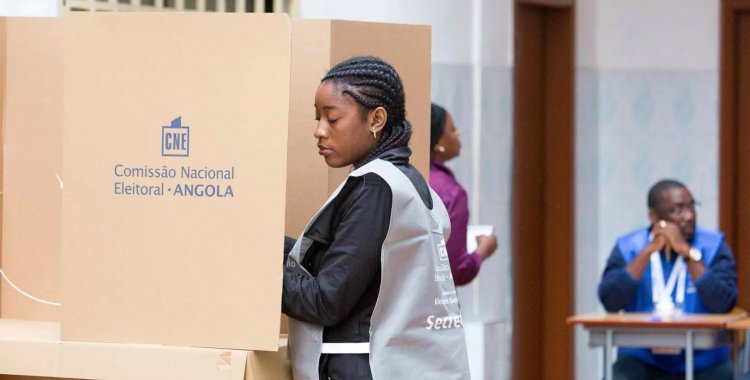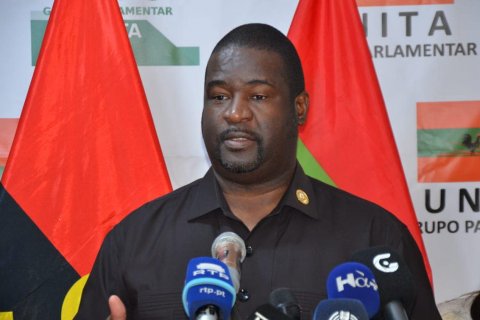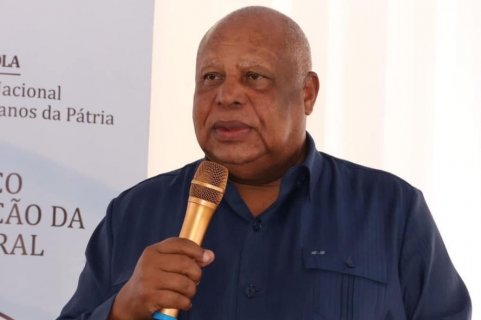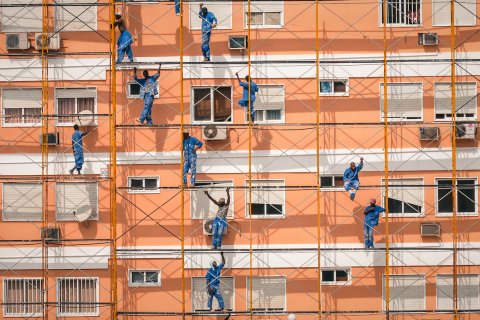In a public note regarding the "voter's right to remain a few hundred meters from the polling station" released by the Justice, Peace and Democracy Association (AJPD), the organization accuses the CNE of "violating" the principle of good faith by "confuse the letter and the spirit of the law", insofar as it "does not distinguish" two situations: "first, the situation of being inside the polling station during the voting process and conclusion of its work and, second, of the citizens to remain within a few hundred meters of the polling station".
The civil society organization recognizes that the Organic Law on General Elections "unequivocally expresses the ban on voters staying inside polling stations, after having exercised their right to vote", according to the note.
But he stresses that "after the competent bodies have posted the summary minutes at the polling station, citizens have the right to enter the polling station to find out about the results obtained from the voting at the polling station, reading and even being able to photograph the synthesis act".
The AJPD reproduces the norm of the organic electoral law that determines that "citizens who are manifestly intoxicated, carry any weapon or are disturbing order and tranquility are not admitted to polling stations, and must be removed by public order forces of polling stations, within a radius of 500 meters".
But then he maintains that "voters who have exercised their right to vote may remain a few hundred meters from the polling station, provided they are not drunk, do not have a weapon and are not disturbing public order."
The organization also stresses that the organic law "prohibits the presence of armed force in polling stations, up to a distance of 100 meters", and that it is up to the president of the polling station to request the presence of this force, "after hearing the other members " of the polling station, "when it is necessary to put an end to any disturbance or to prevent any aggression or violence, inside or outside the building of the polling station, or in its proximity, or in case of disobedience to its orders".
Any recourse to this prerogative must be expressed in the summary minutes of the polling station, namely the "reasons for the request and the period for the presence of said force", emphasizes the note.
"The Organic Law on General Elections neither in its letter nor in its spirit prohibits citizens from waiting for the summary minutes to be posted a few hundred meters away from the polling station", says the AJPD.
"The [Angolan] Constitution enshrines the following fundamental rights: the right to free movement (...) and the right to be informed", concludes the note.
The president of the CNE, Manuel Pereira da Silva, appealed on Tuesday to the magistrates and the police of Angola to prevent the possible concentration of citizens next to the polling stations after they had voted, making "comply with the law".
The CNE considers the appeal of civil society – namely the "Votou, Sentou" movement – and the opposition, which have encouraged voters to remain at polling stations after voting in the August 24 general elections, a violation of the law.
The CNE president's appeal provoked antagonistic reactions from some Angolan jurists contacted by Lusa. For three magistrates contacted, it is consensual that the CNE "does not command" the Public Prosecutor's Office, and that "each State body knows its role", but the appeal was considered "pedagogical" and "legitimate" and considered "unnecessary" by others.
Lawyer Sebastião Vinte Cinco considered that the issue "has to do with the safety of those who are voting and who are thinking of coming to vote" and that "any disturbance situation that may jeopardize the exercise of the right to vote" must be "cautious".
In the same vein, an Angolan constitutionalist, who spoke on condition of anonymity, stressed that "the issue is the crowding of people around polling stations, which can eventually cause discomfort or disturbance of the vote, which is illegal".
In the opinion of lawyer Benja Satula, the appeal of the "Voted, Sat" movement and the opposition parties does not prevent people who are not drunk and who are not disturbing from being near polling stations, "at a considerable distance, even less than 500 meters away, provided that a work area is safeguarded, but from where they can observe what is happening in the assembly".
"I don't see that this can be prevented or sanctioned by the authorities. I think this is not the spirit of the law", added this lawyer.
In his opinion, the type of prevention actions by citizen groups such as "Votou, Sentou" can "be very effective in guaranteeing the transparency of elections in large urban centers such as Luanda, Benguela, Huambo or Huíla".







